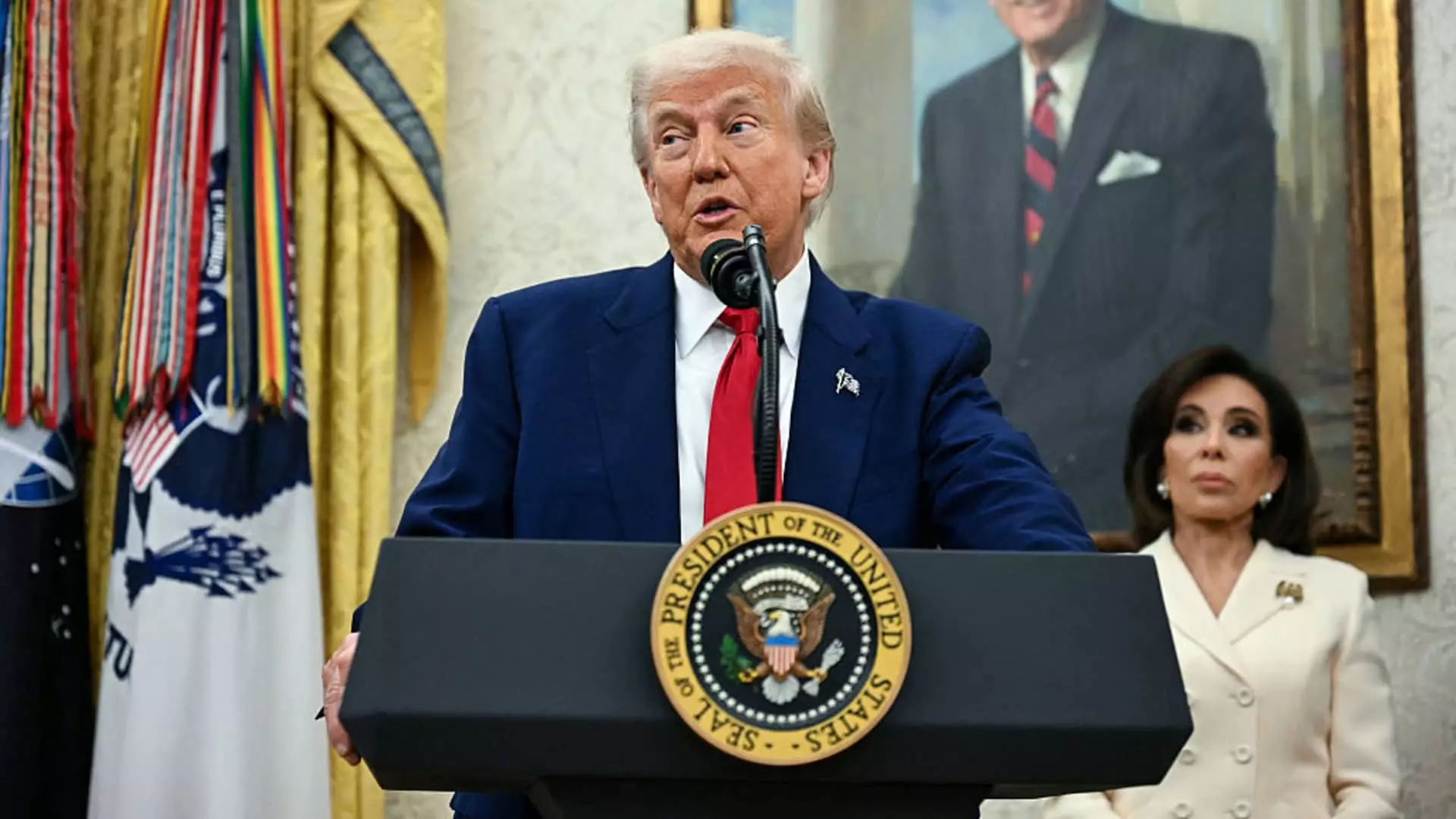The mercurial nature of President Donald Trump’s trade policies has left markets and investors in a constant state of anxiety. What is fondly termed the “TACO trade”—an acronym describing Trump’s tendency to “Always Chicken Out”—encapsulates a troubling cycle. While the art of negotiation is ostensibly a hallmark of Trump’s presidency, the reality often deviates sharply from this narrative. Instead of strengthening American trade credibility, his erratic tariff threats signal a deeper dysfunction within not just his administration but the broader economic framework.
The Misconception of Strength
Trump’s insistence that his negotiations are grounded in strength misses a crucial point: strength does not originate from sporadic posturing but from consistency and reliability. When the president boisterously announces heavy tariffs on entities like the European Union, the immediate repercussions are severe, triggering stock tumbles and significant investor unease. The subsequent withdrawal of such threats may be labeled as negotiation finesse, yet this interpretation is naive. An effective leader should embody a sense of stability, not the erratic, almost theatrical behaviors Trump has come to epitomize. Markets do not respond to bluster; they thrive on predictable, strategic action.
The Illusion of Tactical Brilliance
Trump’s reasoning—that sudden threats lead to favorable negotiations—could be interpreted as a simplistic understanding of economic diplomacy. His proclamation of having jumpstarted trade talks with the EU, thanks to a hefty 50% tariff threat, speaks to a certain bravado, but it also underscores a key flaw: that negotiations must stem from mutual respect and understanding, not intimidation. Economies, particularly those as significant as the EU’s, cannot be cowed into comportment merely through bluster and bombast. When Trump later walks back these tariffs, the message sent back to European leaders is not of victory, but rather, confusion—an envoy of uncertainty that dilutes the U.S. bargaining position.
Trade Policies: A Pattern of Instability
This isn’t an isolated incident; it is a recurring theme throughout Trump’s administration. Recall the rapid flip-flops regarding tariffs on China or the haphazard implementation of its trade strategies. The volatility raises essential questions: What will be the long-term implications for U.S. trade partnerships? How can investors make sound economic predictions when the underlying policies are akin to a game of Russian roulette? Inconsistent approaches undermine foreign allies’ ability to engage in meaningful, long-term investments. They prop up barriers instead of fostering trade relationships that yield mutual gains.
A Rallying Cry for Consistency
As centrists, we ought to demand a trade policy marked by steadiness and predictability. Strong economies are built on stable foundations, not ephemeral threats meant to intimidate or coerce. Trump’s approach, while perhaps appealing to his base, risks alienating allies and creating a narrative that brandishes the U.S. as a capricious negotiating partner. It is paramount for the health of our economy that we shift away from tactics steeped in bluster, and instead cultivate a sense of steadfast engagement with both allies and adversaries alike. A reimagined focus on diplomacy and collaboration could yield results far more profound than any short-lived tariff threat ever could.


Leave a Reply